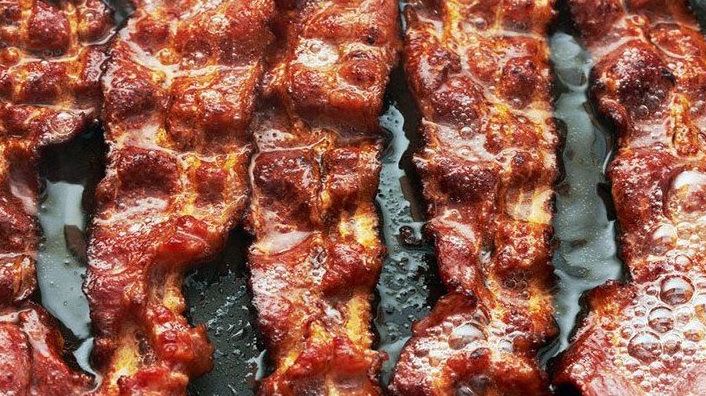How Much Do You Know About the Ketogenic Diet?
Keto remains one of the hottest buzzwords in the diet world. With claims you can lose weight fast, improve athletic performance, and lower blood sugar in diabetics, the ketogenic diet promises something for everyone. But is the weight loss program the best choice for you? Test your knowledge and find out how much you know about the keto diet.

What is the keto diet?

Keto is a low-carb, high-fat diet. By depriving your body of carbohydrates, the body is forced to burn stored fat as fuel, thereby maximizing weight loss.
A) A low-carb, high-fat diet
B) A high-carb, low-fat diet
C) A low-carb, high-protein diet
D) A no-carb diet
What is the recommended fat-protein-carb ratio for the keto diet?

There are several different types of the keto diet, but the recommended ratio is 75 percent fat, 20 percent protein, 5 percent carbs.
A) 50 percent fat, 40 percent protein, 10 percent carbs
b) 75 percent fat, 20 percent protein, 5 percent carbs
C) 90 percent fat, 5 percent protein, 5 percent carbs
D) Depends on the person
What is ketosis?

Ketosis is a normal metabolic process that is triggered when the body doesn't have enough glucose stores for fuel. The body resorts to burning stored fat for energy instead of carbs. Ketosis produces ketones, which are acids that build up in the body and can be used for energy.
A) A metabolic state where the body burns glucose for energy
B) A metabolic state that rids the body of ketones
C) A metabolic state where the body burns glucose for energy
D) A metabolic state where the body burns fat for energy
Answers B) and D)
What is a sure indicator you're in ketosis?

While there are many indicators of being in ketosis, such as headaches, dehydration, and fatigue, the best way to tell if you're in ketosis is by taking a blood or urine test to check for the presence of ketones.
A) Persistent headache
B) Rapid weight loss
C) Extreme thirst
D) Testing urine or blood for ketones
Which diseases is the keto diet scientifically proven to treat?

Health claims of the keto diet range from supplemental treatment for cancer, to acting as a mood stabilizer for people with bipolar disorder. There is evidence to suggest keto can help improve blood glucose levels in those with type 2 diabetes, but the only scientifically proven benefit so far is reducing epileptic seizures in children.
A) Cancer
B) Type 2 diabetes
C) Epilepsy in children
D) Bipolar disorder
E) None of the above
What are potential health risks of the keto diet?

Many people on the keto diet experience flu-like symptoms, otherwise known as the "keto flu." Eliminating or severely restricting major food groups, like fruits, vegetables, and whole grains, can lead to nutritional deficiencies, therefore it's important the diet is well planned to ensure you're hitting all your nutritional bases.
A) Flu-like symptoms
B) Kidney stones
C) Nutritional deficiencies
D) Gastrointestinal distress
E) All of the above
What is diabetic ketoacidosis?

Diabetic ketoacidosis is a medical emergency that is very different from nutritional ketosis. An insulin deficiency is the primary cause of diabetic ketoacidosis, and symptoms may include: fast, deep breathing, fruity smelling breath, stomach pain, vomiting or diarrhea, and blurry vision.
What ketosis is called in diabetics
When ketones are too low in the body
A health emergency requiring immediate medical attention
When blood sugar levels are too high
Which of these foods can you eat on the keto diet?

Acceptable foods for the keto diet include nonstarchy vegetables, dairy, protein, and healthy fats. Foods to avoid on the keto diet include processed foods, sweets, grains of all kind, high-carb fruits (some fruits, like avocados, are keto-friendly), alcohol, artificial sweeteners, and desserts.
Avocados
Cauliflower
Bacon
Cream cheese
All of the above
None of the above
Who should avoid the keto diet?

People with type 1 diabetes, thyroid disease, multiple sclerosis, or who have had their gallbladder removed or have a history of eating disorders should avoid the keto diet as it may be risky for them.
A) People with a history of eating disorders
B) People with multiple sclerosis
C) People with type 1 diabetes
D) All of the above
E) The keto diet is safe for everyone
You got {number correct}/{number of questions} correct answers
Learn more about the keto diet here:
- Potential Health Benefits and Risks of the Keto Diet
- Answers to 15 Burning Questions About the Keto Diet
- 8 Common Keto Mistakes and How to Avoid Them
- A Complete List of What to Eat and Avoid on the Keto Diet
- 20 Keto Diet Meals You Can Make Ahead of Time
- 11 Health Conditions the Keto Diet May Be Able to Help, and 6 it Definitely Won't
- 12 Ways to Do the Keto Diet on a Budget